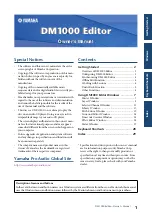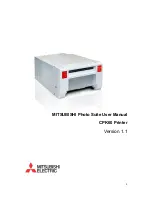
case BUS_ISA:
8
if (get_config(ctlr, RES_PORT, NULL, &port_sel, 0) >= 0) {
9
reg = port_sel.base_address;
10
} else {
11
printf("el%d: Can’t get assigned IOBASE\n",unit);
return(0);
}
if (get_config(ctlr, RES_IRQ, NULL, &irq_sel, 0) < 0) {
12
printf("el%d: Can’t get assigned IRQ\n", unit);
return(0);
}
if (el_is+ == 0)
13
el_isa_reset_all(reg, &isatag, ctlr);
if (el_isa_activate(reg, &isatag, ctlr)) {
14
printf("el%d: 3C509 not present or not responding at 0x%x\n",
unit, reg);
return(0);
}
break;
default:
15
printf("el%d: Unrecognized bus type\n", unit);
return(0);
break;
}
1
Determines which bus the
if_el
driver operates on by examining the
constant that the bus configuration code has stored in the
bus_type
member. The
el_probe( )
routine references this value through the
controller
data structure pointer’s
bus_hd
member. This pointer is
the data structure that is associated with this 3Com 3C5x9 device.
2
Performs tasks related to the PCMCIA bus if
bus_type
evaluates to
the constant
BUS_PCMCIA
.
3
Adds the I/O handle to the base address of the card and stores it in the
reg
variable. The
reg
variable becomes an argument in subsequent
calls to the read and write macros.
4
Determines whether the card is a multifunction card or a single-function
card.
5
Calls the
READ_BUS_D16
macro to read a word (16 bits) from a device
register that is located in the bus I/O address space. This read operation
verifies that the EtherLink III card is attached.
If the data that
READ_BUS_D16
returns is not equal to 0x6d50, calls
the
WRITE_BUS_D16
and
DELAY
macros. The
WRITE_BUS_D16
macro
writes a word (16 bits) to a device register that is located in the bus
I/O address space. This specific write operation resets the card. The
DELAY
macro spins, waiting the specified number of microseconds before
continuing execution.
Implementing the Autoconfiguration Support Section (probe) 5–5
















































